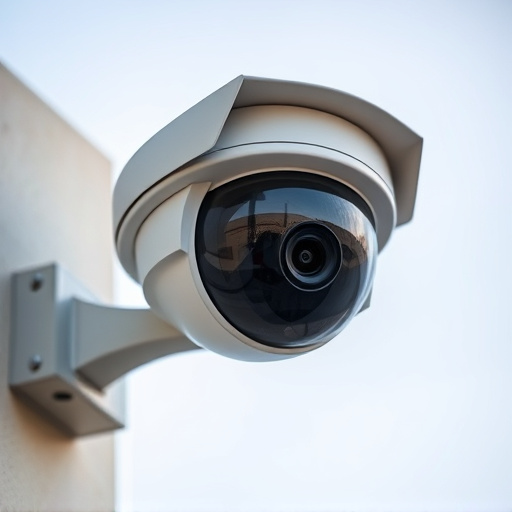Dummy security cameras with realistic appearances and simulated wiring offer a cost-effective way to enhance security and deter crime. Their visual presence, combined with the illusion of active surveillance, creates a psychological deterrent that may reduce vandalism, theft, and other malicious activities. While ethical considerations surround their use, these fake cameras are valuable tools for crime prevention when strategically placed in high-risk areas, providing businesses, homes, and public spaces with an additional layer of perceived security.
“Discover the innovative world of fake security cameras with simulated wiring, a growing trend in crime prevention. This article explores the multifaceted role of dummy cameras, their benefits, and how simulated wiring boosts their realism and effectiveness. We delve into ethical considerations surrounding simulation for crime deterrence and examine real-world applications to determine if these cameras are a worthwhile investment. Uncover whether Do Dummy Security Cameras Deter Crime and explore this intriguing solution.”
- Understanding Dummy Security Cameras: Their Role and Benefits
- How Simulated Wiring Enhances the Effectiveness of Fake Cameras
- Ethical Considerations: Using Simulation for Crime Prevention
- Real-World Applications: Are Dummy Cameras Worth the Investment?
Understanding Dummy Security Cameras: Their Role and Benefits
Dummy security cameras, also known as fake or simulated security cameras, play a significant role in enhancing security measures while offering an economical alternative to real surveillance systems. These devices are designed to look and function like genuine security equipment, complete with realistic wiring and LED indicators. Their primary purpose is not to actively monitor and record footage but to deter potential criminals by creating the perception of enhanced surveillance.
The benefits of dummy security cameras are manifold. They serve as a powerful deterrent against crime, as would-be perpetrators may be less likely to target areas or properties with visible fake cameras. By strategically placing these simulated devices, businesses, homes, and public spaces can reduce the risk of vandalism, theft, or other malicious activities. Moreover, dummy cameras provide peace of mind, ensuring that individuals feel safer in knowing that they are being observed—even if it’s a simulated observation.
How Simulated Wiring Enhances the Effectiveness of Fake Cameras
The addition of simulated wiring to fake security cameras significantly boosts their deterrence factor, making them a more effective crime prevention tool. While dummy cameras alone can act as visual reminders and deter potential criminals, the false wiring creates an authentic illusion that adds another layer of realism. This deceptive detail encourages passersby and would-be perpetrators to believe that genuine surveillance is taking place, even if the cameras are not actively recording.
The strategic placement of simulated wiring, often mimicking the appearance of real cable connections, enhances the overall credibility of the fake camera setup. This can lead to an increase in the perceived risk for criminals, as they might think twice before targeting an area that appears to be under constant surveillance. Thus, do dummy security cameras deter crime? The answer lies in their ability to create a powerful psychological effect, turning them into powerful tools in the fight against unlawful activities.
Ethical Considerations: Using Simulation for Crime Prevention
The use of dummy or fake security cameras with simulated wiring as a crime prevention measure raises interesting ethical questions. While they may seem like an innovative solution for deterring potential criminals, there are concerns about their impact on public trust and privacy. On one hand, these simulated cameras can effectively trick intruders into believing they are under constant surveillance, potentially discouraging criminal activities. This non-intrusive approach could be particularly beneficial in areas with high crime rates or sensitive locations like schools and businesses.
However, it’s crucial to consider the potential consequences. If not implemented responsibly, dummy security systems might create a false sense of security for communities. It’s essential to strike a balance between utilizing technology for safety and preserving transparency. The effectiveness of do dummy security cameras deter crime remains debatable, but their strategic placement and realistic simulations can be powerful tools in crime prevention strategies when used ethically.
Real-World Applications: Are Dummy Cameras Worth the Investment?
In recent years, dummy security cameras with simulated wiring have gained popularity as an alternative to real surveillance equipment. While they may appear identical to genuine cameras at first glance, their lack of functional components raises questions about their effectiveness in deterring crime. However, there are real-world applications where these fake cameras prove invaluable.
For instance, businesses and homeowners often use dummy cameras as a cost-effective way to enhance security perceptions without investing heavily in advanced surveillance systems. Their strategic placement can deter potential intruders, as criminals may be less likely to target properties they perceive as well-monitored. This psychological effect alone can significantly reduce the risk of break-ins and other security incidents, making them worth considering as a supplementary security measure.
Dummy security cameras, equipped with simulated wiring, offer a cost-effective and non-intrusive crime prevention solution. By enhancing the appearance of active surveillance, these fake cameras can significantly deter criminal activity. While ethical considerations must be addressed, particularly in terms of public awareness and honest use, real-world applications demonstrate that dummy cameras are a worthy investment for property owners and security professionals alike. The effectiveness of simulated wiring further solidifies their role as a game-changer in urban security, ensuring safety without breaking the bank.
